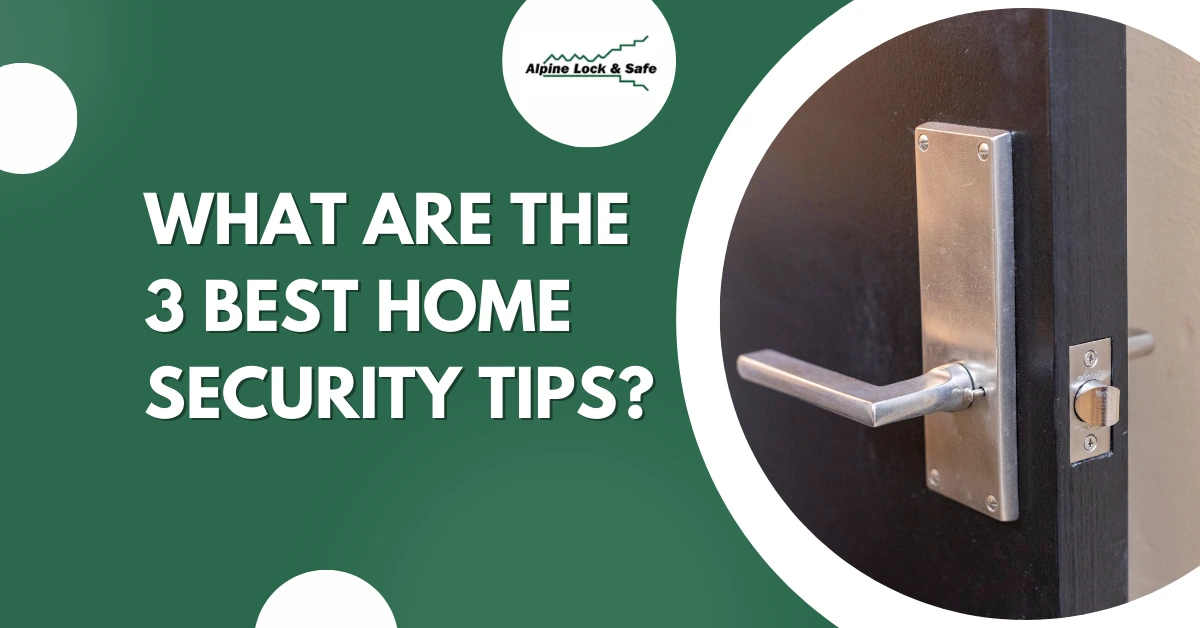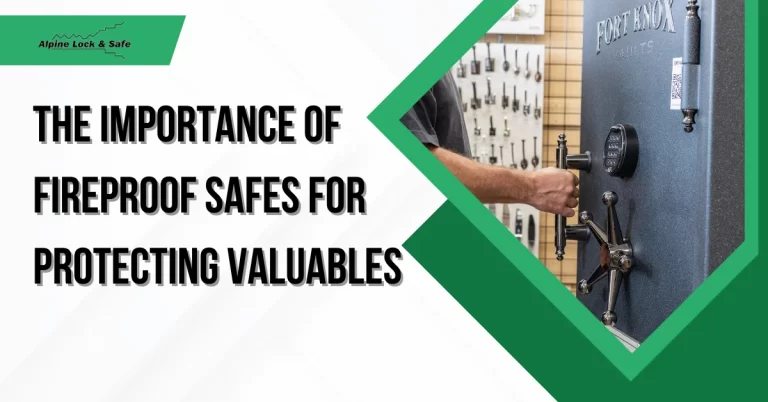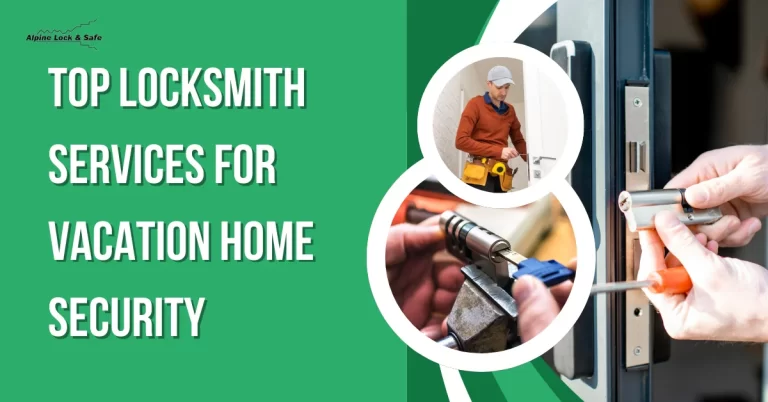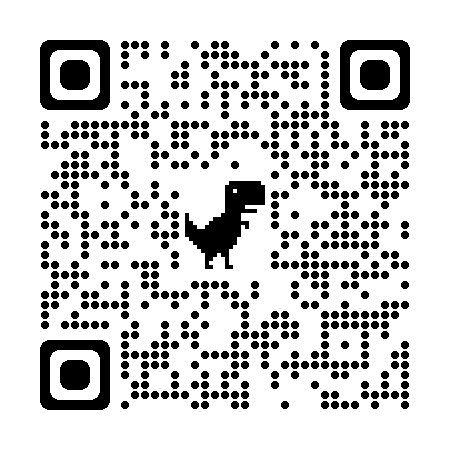The three best home security tips are setting a rigorous safety routine, developing good relationships with your neighbors, and interacting with your local police department. Your routine must include locking all doors and windows when leaving home or turning in for the night, and consistently activating your alarm system. Becoming friendly with your neighbors creates an extra layer of protection as they can keep an eye out for any suspicious activity. In addition, engaging with your local police provides valuable tips tailored to your home and neighborhood. If you explore deeper, there’s more to discover regarding these strategies to keep your home safe and secure.
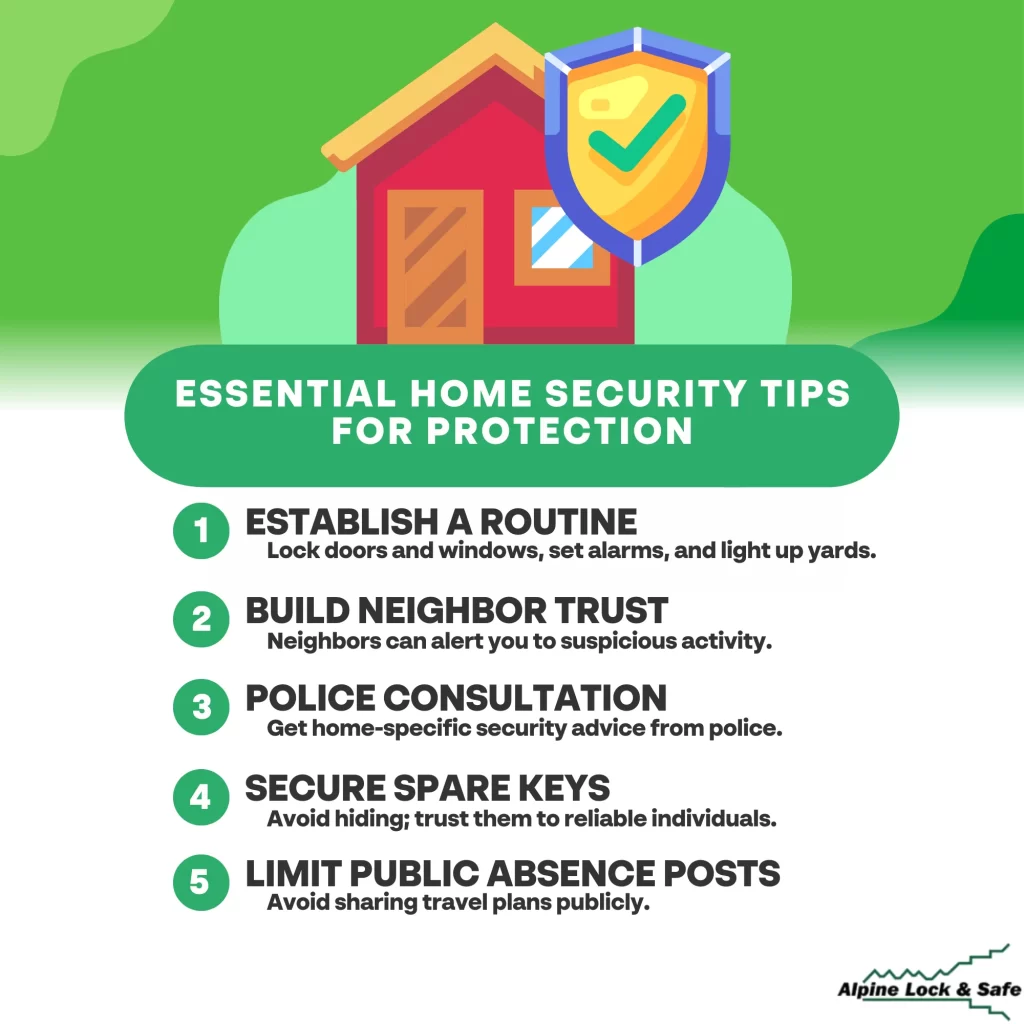
Key Takeaways
- Establish a safety routine, including locking doors and windows, activating alarms, and adequately lighting the yard.
- Build relationships with neighbors to create a safety network and for additional surveillance of your property.
- Consult your local police department for specific home security tips and possibly a home security audit.
- Avoid leaving spare keys outside and instead entrust them to reliable individuals to prevent unauthorized access.
- Refrain from sharing travel plans or absence from home on public platforms, like social media or answering machines, to thwart potential break-ins.
Set a safety routine
Establishing a safety routine is an essential part of your home security strategy. Consistency in your actions can deter potential intruders and enhance your personal security at home. Here are some home security tips to follow.
Firstly, make it a habit to lock all doors and windows before leaving your home or going to bed. It’s simple, yet one of the most effective ways to keep your home safe.
Next, remember to activate your alarm system every time you exit. This action not only protects your home but also alerts the authorities in case of any intrusion.
Further, guarantee you keep your yard well-lit at night. Intruders often target homes that offer plenty of hiding spots. A well-lit exterior can discourage potential burglars from approaching your property.
Additionally, avoid leaving any spare keys outside. It’s safer to leave them with a trusted friend or neighbor.
Lastly, don’t advertise your absence on social media or your answering machine when you’re away. These are common security tips at home that often get overlooked.
Get to know your neighbors
In line with maintaining consistent safety routines, it’s equally beneficial to build good relationships with your neighbors. This is one of the home security tips you never thought of, but it’s central to house protection. Knowing who lives around you and having open lines of communication can dramatically improve your home’s security.
Your neighbors can serve as an extra set of eyes, watching over your property when you’re not around. They’re usually the first to notice anything unusual and can alert you or the authorities promptly. This is one of the best home security tips because it fosters a sense of community, promoting collective vigilance and reducing risks.
Moreover, a well-knit neighborhood can be a deterrent to potential criminals. It’s harder to break into a home in a neighborhood where people know each other and look out for one another.
Talk with your local police department.
Engaging with your local police department can greatly bolster your home’s security. They can provide you with valuable police tips for home security. This is an indispensable service that police departments offer to guarantee your home is as safe as possible.
Many police departments will gladly perform a home security audit, giving you tailored home security tips and tricks, and showing you how to secure your home. They’ll walk you through security measures, pointing out any weaknesses and suggesting improvements. Their expert advice will help you create an effective security plan.
Here are some of the topics they might cover:
- The importance of keeping doors and windows locked
- Correctly installing and using security systems
- Safe storage of valuables to deter theft
- The value of outdoor lighting as a deterrent
Following these security tips and implementing the suggested home security safety tips can considerably reduce your risk of burglary.
This service isn’t just about securing your home; it also enhances the relationship between the police and the community. Remember, their primary goal is your safety and customer satisfaction.
Frequently Asked Questions
What Type of Locks Offer the Highest Level of Home Security?
You’re asking about the most secure locks. Deadbolt locks offer high security. Keyless entry systems add an extra layer. Also, consider anti-snap cylinders to resist common burglary methods. These’ll notably upgrade your home’s security.
How Often Should I Change My House Locks?
You should change your house locks every five years or so. It’s like updating your passwords, you’re enhancing security. If you lose keys or experience a break-in, change them immediately for your peace of mind.
Are Digital Keypad Entry Systems More Secure Than Traditional Locks?
Yes, digital keypad entry systems can provide more security than traditional locks. They’re harder to pick and you can easily change the code if you suspect it’s been compromised. It’s a solid upgrade for home security.
What Should I Do to Secure My Home After a Break-In?
Immediately after a break-in, you should contact local authorities, then a professional locksmith. They’ll repair any damage, re-key or change your locks, ensuring you regain secure control over your home’s safety swiftly.
How Can a Locksmith Assist in Enhancing My Home Security?
A locksmith can bolster your home security by repairing damaged locks, installing new high-tech lock systems, and providing re-keying services. They’re skilled in enhancing home security, ensuring your peace of mind.
Conclusion
In the end, safeguarding your home is like knitting a protective blanket. Each stitch, whether it’s setting a safety routine, knowing your neighbors, or liaising with local law enforcement, strengthens your home’s security. A study shows that burglaries decrease by 50% in well-connected neighborhoods. So, don’t underestimate these simple steps. Your home’s safety is in your hands, stitch your protective blanket well and sleep soundly knowing you’ve done your best.


